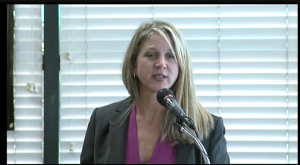 Ask any teacher why they became one and the most common response is that they once had an awesome teacher that made them want to become an educator themselves. Mine was Zacher a wonderful art teacher who made me want to learn about how art came about, about egyptians and greeks and romans and romanesque and gothic and renaissance and baroque and then some. I can still see clearly in my mind the wonderful notebooks she put together and the very special times we spent huddled around the art tables going through the history as she told stories of what had happened and invited us to contribute, to question and to seek our own responses. I still have my essays, hand written on foolscap lined paper. More importantly, I never forgot those learning sessions and to this day I teach, I learn and I question. I also make art – not in any common studio form such as painting and ceramics like I did in university but I think and do art works – differently. I have a collection of diaries, for examples, one each for my adventures overseas. In them I poured out my thoughts and feelings, I described my adventures, I drew and I tore paper and images and pasted them in. Then I drew over the top and even used water colour pencils something I had dismissed due to my experiences in that same university. You see I don’t particularly like rules, nor do I think that there are always ‘right’ answers. I approach everything through a visual, emotional perspective. Some might say that that, is why I get into trouble! And that’s true I get emotionally attached and then it hurts when things don’t work out. At the same time that’s okay too, because I like capturing those moments when you’re suddenly struck by a new thought and take the risk regardless.
Ask any teacher why they became one and the most common response is that they once had an awesome teacher that made them want to become an educator themselves. Mine was Zacher a wonderful art teacher who made me want to learn about how art came about, about egyptians and greeks and romans and romanesque and gothic and renaissance and baroque and then some. I can still see clearly in my mind the wonderful notebooks she put together and the very special times we spent huddled around the art tables going through the history as she told stories of what had happened and invited us to contribute, to question and to seek our own responses. I still have my essays, hand written on foolscap lined paper. More importantly, I never forgot those learning sessions and to this day I teach, I learn and I question. I also make art – not in any common studio form such as painting and ceramics like I did in university but I think and do art works – differently. I have a collection of diaries, for examples, one each for my adventures overseas. In them I poured out my thoughts and feelings, I described my adventures, I drew and I tore paper and images and pasted them in. Then I drew over the top and even used water colour pencils something I had dismissed due to my experiences in that same university. You see I don’t particularly like rules, nor do I think that there are always ‘right’ answers. I approach everything through a visual, emotional perspective. Some might say that that, is why I get into trouble! And that’s true I get emotionally attached and then it hurts when things don’t work out. At the same time that’s okay too, because I like capturing those moments when you’re suddenly struck by a new thought and take the risk regardless.
As an educator, I value uppermost the importance of relationships. I suspect that the teachers mentioned by my colleague educators have this gift to connect with their students in many ways. These are the teachers that become the ‘awesomes’. They seem to be always the ones that make the effort, that give a damn about how and who you really are. They’re not superficial, they really do want to know. They are also the same ones who do everything in their power and then some, to allow you to succeed. They take opportunities to connect with you. They seek your learning preference and find out what you like and then they ingeniously combine and blend, mingle, amalgamate, and intermix them strategically within the content to get you hooked – all of us – hooked into learning.
educators have this gift to connect with their students in many ways. These are the teachers that become the ‘awesomes’. They seem to be always the ones that make the effort, that give a damn about how and who you really are. They’re not superficial, they really do want to know. They are also the same ones who do everything in their power and then some, to allow you to succeed. They take opportunities to connect with you. They seek your learning preference and find out what you like and then they ingeniously combine and blend, mingle, amalgamate, and intermix them strategically within the content to get you hooked – all of us – hooked into learning.
So, if you get one message from this post it’s that tomorrow when you get to school you make an extra effort to connect with that kid who always gets away. I recommend 5 simple things to get you started:
1. Make eye contact and smile 🙂
2. Greet them individually by name
3. Notice something they do well and let them know about it
4. Tell them what you like to do and why.
5. Ask them what they like to do and why.
I’d love to hear what you do to form your learning relationships with students.
Thanks for reading 🙂






